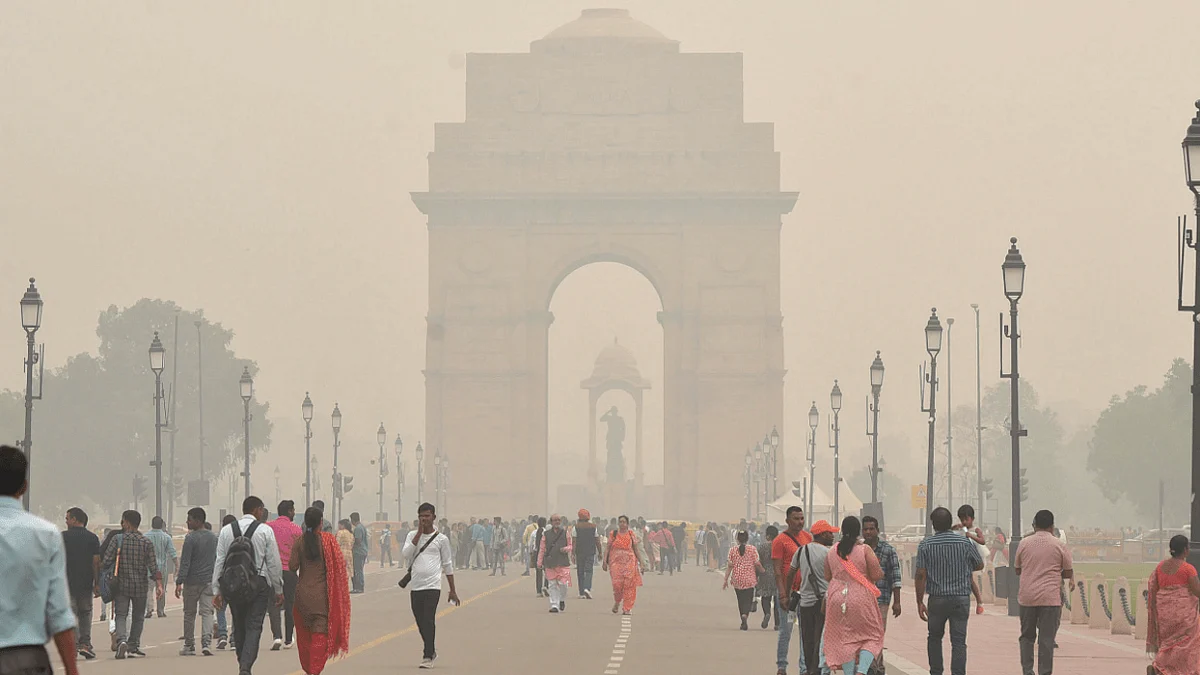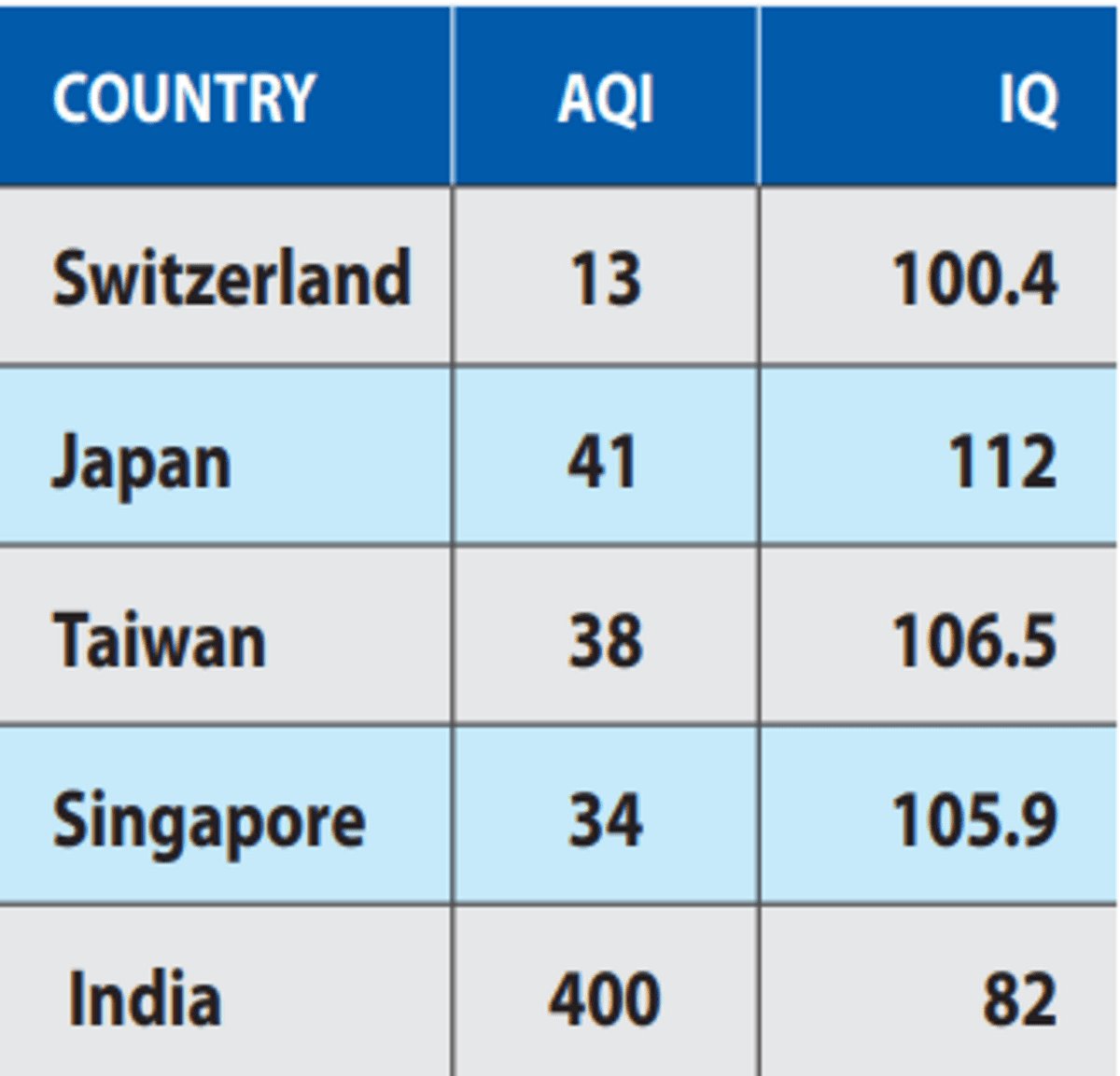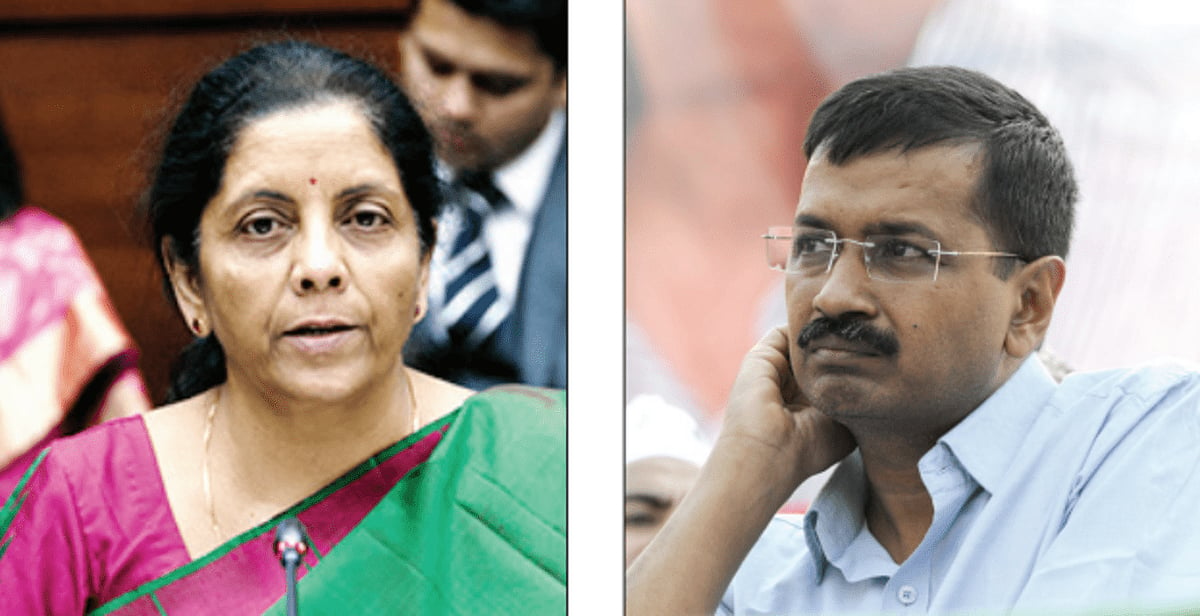Why our AQI is stubbornly high
The average AQI in my NCR area is about 400. And for once this can’t be passed off as a foreign conspiracy to “belittle our image” since this is our very own Make in India data

I’ve been a liberal arts type all my life, both by education and aptitude, and avoid numbers like Queen Camilla avoids Meghan Markel, except when the numbers come in a sequence like 36-20-34. But one has to admit that at times they make sense, in a fascinating way, and so this week I’ve decided to delve into some of them.
I have a good friend in Switzerland who sensibly quit the IAS and the country 40 years ago and now spends his retirement playing the alphorn to frolicking sheep on the mountain slopes. But not before sending us a WhatsApp message every morning giving us the AQI of his adopted country on that day. It usually hovers between 13 and 18. For those who are slow on the uptake, or up on the slowtake, I’ll repeat that—between 13 and 18. (This figure used to be about 8 before my friend and about 16,500 other Indians decided to take up residence there in preference to Malerkotla and Kotkapura).
The average AQI in my NCR area is about 400. And for once this can’t be passed off as a foreign conspiracy to “belittle our image” since this is our very own Make in India data.
Now, we are a Vishwaguru, the fifth largest economy in the world, ruled by the largest political party in the world, presided over by a Prime Minister who (by his own declaration) is at the forefront of the war against climate change and has even “won” international awards like Champion of the Earth. So why is our ambient air quality 45 times worse than Switzerland’s, even allowing for the fact that my Swiss friend doesn’t smoke, while I do?
This question has no doubt been answered by experts, politicians, Baba Ramdev and Mr Kejriwal, but we are still inching up to the 500-mark. Why, you may well ask, like Zelensky did when Putin frogmarched into Ukraine. Because, dear reader, no one has grasped the real reason, except me (or is it ‘I’?) The real reason, according to me, is the fact that we mistake AQI for IQ and so believe that the higher the AQI, the better it is. (This, incidentally, is what happens when you ditch the Queen’s English for the King’s Jumla, and don’t learn how to watch your ‘Q’s and dot your ‘I’s).
After my epiphanic discovery, I decided to dig deeper into this IQ business to see if there exists a co-relation between IQ and AQI, and found, to my Archimedian delight, that such a relationship does exist! But it’s an inverse one—countries with lower IQs usually have higher AQIs and vice versa. Here are the figures for India, Switzerland and the top three countries of the world for good air quality (the AQI figures are for their capitals as at the time of writing this piece).

Talking about climate change, the environment minister proudly claims ‘India is the solution, not the problem’ even as he approves the diversion of 140 sq. km of evergreen rainforest land and the felling of 850,000 trees in Greater Nicobar for the construction of a port, airport and power plant
So, there you have it, the cause and effect, the smoking gun. One would think that the solution to our AQI problem is now obvious— raise the average IQ of India. But that, folks, is harder than raising the Titanic.
For one, our intellectual ecosystem is not conducive to that at all, and it’s getting more lobotomised every day. It’s hard to improve intelligence levels when students are taught that we attained our Independence in 2014 and not 1947, or when we are told that Maharana Pratap won the battle of Haldighati, or when Nehru, not China, is blamed for the 1962 war, or when the government of the day regularly attempts to wage a linguistic colonialism on states, forgetting that the colonial age has been long dead and buried, or when universities are sought to be turned into indoctrination centres, the ‘slaughterhouses of intelligence’, as Madhusudan Das had famously said, or when the minister for environment proudly claims that “India is the solution, not the problem” to tackling climate change even as he approves the diversion of 140 sq. km of evergreen rainforest land and the felling of 850,000 trees in Greater Nicobar for the construction of a port, airport and power plant. (Incidentally, you don’t need a high IQ to guess who will get these projects).
It would appear that history is indeed written by the victor, whether the victory is obtained in war, or at the hustings, or by purchasing the winning horses. But a country in continuous derby mode does not guarantee a sound intelligence quotient. It also does not help the cause of promoting intelligence when a country reserves 60 per cent of its jobs and college quotas (in some states it’s even higher) for various castes and classes under the guise of ‘affirmative action’, relegating merit to the back benches. Merit has now become non-merit goods, in economic parlance. As my late professor, P. Lal, would have said: I am what I think, and if I can’t think, then I am nothing.

Our rulers and ‘influencers’ do not inject much wisdom into the reverse and flush out what little national IQ there remains every time a minister says that Einstein discovered gravity, or when another minister scoffs at Darwin’s theory of evolution because none of his ancestors had ever seen an ape turning into homo sapiens, or when the finance minister claims that the rupee has not weakened, it’s the dollar that has become stronger, or when the IIT educated Mr Kejriwal says that the rupee will recover if images of Hindu gods are printed on it. (My view is that the only force that can make the rupee rise is Sunny Leone: her touch would make the dead rise in their graves, but that will not amuse the flaccid mandarins in South Block, so we’ll let that slide).
To conclude, therefore: I am no meteorologist or climate scientist, but I can confidently predict, like Baba Vanga, that, going by the inverse theory established above (for which I generously claim no patent), our AQI will only continue to rise in the days to come.
But I am not complaining. According to another set of statistics released recently in a Berkeley Earth scientific paper, the pollution in Delhi is equivalent to smoking 20.4 cigarettes a day. After reading this, I’ve now stopped smoking—why should I spend my money on something the government is giving away for free? The savings almost make up for the denial of those three instalments of our DA during the pandemic.
As the Chief Economic Advisor would doubtless claim, Delhi’s smog is revenue neutral. Or, to put it in the more easily comprehended language of our finance minister, our IQ is not falling, our SQ is rising. Go figure.
Views are personal
Follow us on: Facebook, Twitter, Google News, Instagram
Join our official telegram channel (@nationalherald) and stay updated with the latest headlines
